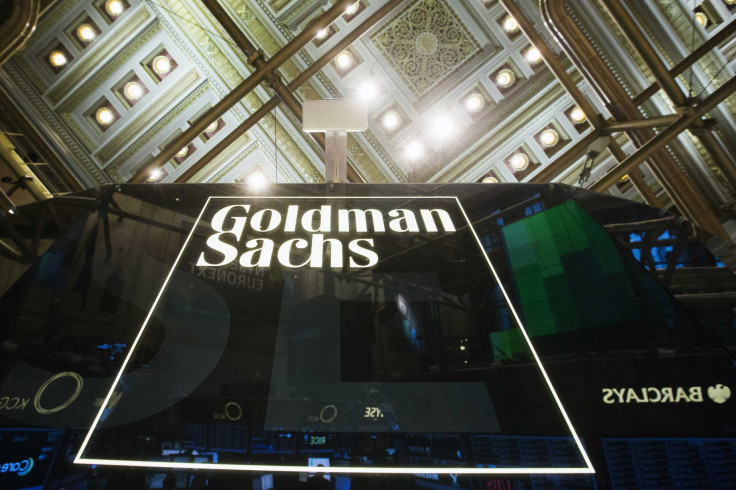Goldman Sachs Leads Group Seeking To Buy Instant Messaging System As Alternative To Bloomberg

(Reuters) -- Wall Street firms led by Goldman Sachs Group Inc. (NYSE:GS) are close to buying a stake in the chat and instant-messaging startup Perzo Inc. as they pursue an alternative to a similar application offered by the privately held Bloomberg LP, sources familiar with Goldman’s plans said.
Banks are trying to cut costs as sluggish trading volumes and higher regulation weigh on revenues. Bloomberg has dominated messaging on Wall Street for years, but its application is part of a data, trading and news terminal that costs about $20,000 a year. The Perzo applications are free.
Several banks and other entities are considering investments in Perzo, said two sources briefed on the matter who declined to comment publicly. The prospective investors include Bank of America Corp. (NYSE:BAC), BlackRock Inc. (NYSE:BLK), Deutsche Bank AG (NYSE:DB), HSBC Holdings PLC (NYSE:HSBC), JPMorgan Chase & Co. (NYSE:JPM) and Morgan Stanley (NYSE:MS), as well as the privately held Maverick Capital Ltd.
The companies, which have received term sheets for the deal and signed nondisclosure agreements in recent days, either declined to comment or did not respond to requests for comment in time for publication.
Goldman Sachs representatives declined to comment on its Perzo investment, its plans to develop a chat program or its use of Bloomberg terminals. Bloomberg declined to comment for this story.
Perzo is a startup based in Palo Alto, Calif., and founded by David Gurle, who declined a request for comment. Perzo’s application differs from Bloomberg’s in that it is open-source, meaning customers can plug it into their systems and alter it as they see fit, whereas Bloomberg customers have to buy the entire terminal, and can’t just buy the messaging system and adapt it.
Banks have been looking for messaging alternatives to Bloomberg’s closed system for years and have had limited success because the Bloomberg system is used by so many on Wall Street. One source compared Bloomberg with BlackBerry Ltd. (NASDAQ:BBRY), whose products dominated the smartphone market until Apple Inc. (NASDAQ:AAPL) came out with its iPhone.
The Thomson Reuters Corp. (NYSE:TRI), which competes with Bloomberg in news, data and analytics, has a chat system with more than 200,000 users in its directory, compared with Bloomberg’s 320,000.
Thomson Reuters has also collaborated with price-data provider Markit and banks including Goldman Sachs to create an open messaging network.
Goldman Sachs representatives declined to comment on its use of Thomson Reuters terminals. Reuters representatives also declined to comment.
It’s unclear what effect a successful new messaging system might have on Goldman’s orders for Bloomberg terminals, or whether Goldman would use Bloomberg’s messaging system alongside the new application.
“Bloomberg is a very tough ecosystem to break,” said Jefferies analyst Dan Dolev. “People say it is the most expensive social network system in the world.” Bloomberg’s rise began in the 1980s when it became a prime source for data and analytics about bonds.
Messaging applications play a critical role in the daily functioning of Wall Street. An underwriter uses messaging programs to tell investors where a bond has priced. Hedge-fund managers use messaging applications to talk about trading ideas, and traders use them to talk to sales staff.
To succeed, a bank messaging system must be secure, because of the sensitive information transmitted through the application. It must allow for central monitoring, so compliance staff and other officials can monitor conversations to make sure the bank is following securities-trading regulations.
Project Babel
Goldman Sachs has been looking at alternatives to Bloomberg’s messaging program for years, and launched a project internally called Babel to develop a competitor in early 2013, according to two sources.
As that project was under way, the bank learned reporters in Bloomberg’s news division had access to information about bank professionals that it assumed had been private, such as when an employee had last logged into his or her terminal, the sources said.
The discovery strained relationships between Bloomberg and Goldman, as well as other large financial clients. Bloomberg publicly apologized and changed its policy to bar reporters from accessing client data.
Goldman’s chief information officer, R. Martin Chavez, who has spent much of his career building technology for the Wall Street bank, has led the Babel project, the sources said. Darren Cohen, who heads Goldman’s principal strategic investments group, got involved when it was decided it might be easier to simply buy a startup that already had technology that could help meet Babel’s goals.
Goldman recently reached out to other banks to get them involved, the sources said.
(Reporting by Lauren Tara LaCapra and Jennifer Saba in New York.; Editing by Dan Wilchins and John Pickering.)
© Copyright Thomson Reuters 2024. All rights reserved.











